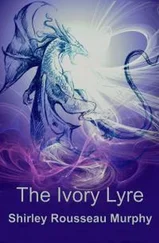Pouring his coffee, sitting down again, he ripped open the envelope before he had time to think about it, wasn’t even careful how he tore it. Pulled out the statement and stared at the front page where it gave the monthly total, which made him gag on his coffee.
Total assets: $1,271,899.10. One million? He read it again.
Total liabilities: $0.00.
Qualifying balance: $1,271,899.10. One million, two hundred and seventy-one thousand, eight hundred and ninety-nine dollars, and ten cents.
Zeb sat for a long time. He checked the amounts and dates of the individual deposits. None were too large, but many were just a few days apart. Took a lot of gas to drive up there that often. Would Nevin have done the banking by mail? That wasn’t like him, he didn’t trust the mail. He refilled his coffee cup and made a ham sandwich. Went out to the shed, picked up the two dozen newspapers stacked neatly on top of an empty crate, papers he kept for blocking the doors during a flooding rain and for sopping up water when he defrosted the freezer. The discarded papers were pretty much in order.
It took him the rest of the afternoon to find and tear out the pages with articles about the recent increase in bank-withdrawal thefts. And all the time thinking about where Nevin would have put the rest of the statements.
If Varney or Thelma knew nothing about this, Nevin might have figured it was safer to leave them here. He began to search the house, Nevin and Thelma’s room first, closet, between the mattress and the springs, the dresser. He found them wrapped in a woolen sweater that Thelma had told Nevin to keep in a zippered plastic bag because of moths. A thin stack of statements with a rubber band around them, folded inside the gray sweater. The same bank, the top one dated the month before the current one, which he slipped in with the others.
Zeb woke real early Saturday morning. He fed and watered the horses, made one phone call, one of the few real friends he had left in the world. He and Robert Blake had ridden broncs together when they were young. Young and strong—and rode the bulls, too, crazy kids. He left the ranch in the old truck, the only transportation he had.
He swung through the village; he was there at eight when the UPS store opened. He made copies of all the statements, at a machine where he was somewhat shielded from the view of prying eyes. He didn’t copy the clippings. He put the copies in a brown envelope and shoved that under the floor mat on the driver’s side. He returned to the house, put the original statements back the way he’d found them, with the new one, folded into the sweater. He was in Santa Cruz by mid-morning, turning in at his friend’s used-car lot.
Robert had pulled one of his cars up to the front of the lot, ones he hadn’t done much cosmetics on yet though he’d maybe fixed up the engines, replaced a few tires. This one was just what he wanted, eighteen-year-old Ford coupe, blue paint so faded it was almost gray. It had nearly new tires, though, and Rob had washed it and polished it as best he could. They hitched the car behind the truck with a car dolly, so Zeb could haul it safely home. They had a beer, shot the bull for a few minutes. Zeb paid for the car with his credit card, which he had used for Nell’s medical bills. He was home again around one, he had plenty of time. Passing the Harpers’ ranch he noted Charlie’s SUV parked by the house, the light in her studio reflecting against the hay barn.
At home he unhitched the car and backed it deep in the shed, tucked the envelope of copied statements in his pocket. Parked the truck just outside where he always did. He checked his watch again. This was Saturday, the best night to try, but he had plenty of time. He knew that little area, it was closer than the village, he knew most of the shopkeepers. The bank stayed open until six on Saturdays so people could deposit their pay, and the restaurant owners could make big deposits to nearly empty their safes before the busiest night of the week when robberies would be lucrative. Restaurant safes were weaker than a bank vault.
Throwing a saddle on his bay gelding he headed at a jog then an easy canter for the Harper place. It was Charlie who had taught Mindy to guide a horse with body movement, easy and nice, a little pressure, a little shift of weight.
He could see Charlie in the kitchen pouring a cup of coffee. She waved him in, and reached for another cup. She had cut her curly red hair short, a bright cap where it used to be a long flaming tangle tied back out of the wind.
Throwing his reins over the hitching rack near the pasture fence, he entered through the all-purpose front door into a big, tile-floored mud room, hooks for jackets, shelves for boots, long sink for scrubbing up hands and arms, pots of flowers on the windowsill. One door stood open to the kitchen, another to the big, high-raftered living room that looked out across the pastures to the sea. When he entered the kitchen, Charlie looked at his expression for a long minute, gave him a hello hug and led him to the table. He didn’t visit often without phoning, didn’t visit for no reason. She looked at the brown envelope he laid on the table, her bright, freckled face puzzled and then uneasy. She reached to the kitchen counter, fetched a plate of gingerbread; looked back at the envelope then at Zebulon, waiting.
“Would you hide it for me where no one else will find it? Well, if Max finds it, that’s okay. At my house, nothing’s very secure. Hide it from Max and not tell him unless he does find it. Or until the time is right. Is that putting too much on a cop’s wife?”
Charlie laughed. “Can you tell me what it is, or is that a secret, too?”
“It’s copies of Nevin’s bank statements, a bank up the coast. I don’t know if they mean anything. I think they do, and that Max will want them. The originals are in Nevin’s dresser. Are you okay with them here, or do they put you in trouble?”
Charlie touched the shoulder holster under her light vest, and grinned at him. The statements would be safe here. She took the envelope, stepped into the living room and behind the fireplace. He heard a stone slide, then a lock click and turn several times. Heard a metal door open.
She returned without the envelope, her stardust of freckles bright with interest, her green eyes wide with questions she wouldn’t ask. Whatever this was about, she knew he had his reasons. That he was doing the right thing, or getting ready to do it. She knew Zeb wouldn’t make trouble for Max.
As for Zeb, he trusted Charlie as he trusted the chief himself. He finished his coffee and gingerbread. He rose, gave her a hug, left quietly out the mud entry. He untied his gelding and headed home, the back way again, they were hardly seen as the bay moved quietly through the woods. At home Zeb unsaddled him, rubbed him down, and went inside to his room.
He had a little nap, drifting off wondering how all this would turn out, wondering if he was making too much of nothing.
He was up and left the house around five, drove in to the shopping center across Highway One from the village: newer grocery, drugstore, lots of casual restaurants and shops, fire station across the side road. He’d liked Molena Point when it was smaller, when this here land was all dairy barns and pastures, before the village started to outgrow itself.
He pulled into a small alley behind the drugstore where he could see the backs of a row of restaurants; and just across the blacktop, cars parked before the bank, its fluorescent lights reflected in their windows. He killed the engine and sat in his car watching for a possible shopkeeper on his way to make a deposit.
Yes, he didn’t wait long and here came Jon Jaarel driving into the lot in his new, white Lexus hatchback. Older, blond man, his once athletic trim still thin but going soft. Jon pulled in carefully between a bread delivery truck and a tall, rented camper, a narrow space where he wouldn’t readily be seen by some pickpocket; the way Jaarel acted, Zeb knew he had money on him. As Jaarel opened the door and started to step out, his trench coat pooched in front as if he were pregnant. In the shadows of the tall vehicles, a car drew up nosing into the narrow space between Jaarel’s door and the truck; the driver swung out, bundled up in the chill dusk, heavy jacket, hood pulled up. As Jaarel stepped out, the driver hauled back and slammed the door against Jaarel, knocking him hard into his own steering wheel and slamming the door against him. Jaarel struggled as the robber leaned in, ripped open Jaarel’s trench coat, snatched out the money bag, and slammed the door in Jon Jaarel’s face, a terrible blow. And the man was gone, barely a flash of his green car as he spun and sped away.
Читать дальше
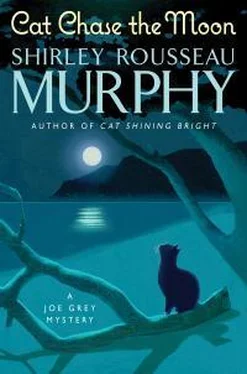
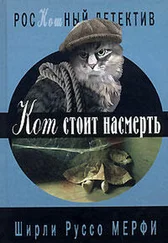
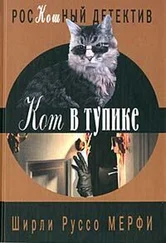
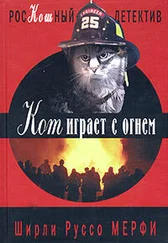

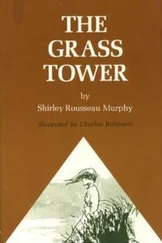
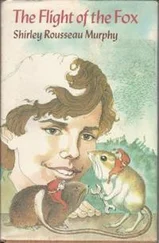
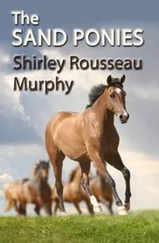
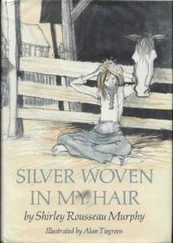
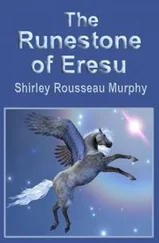
![Ширли Мерфи - The Shattered Stone [calibre]](/books/436059/shirli-merfi-the-shattered-stone-calibre-thumb.webp)

